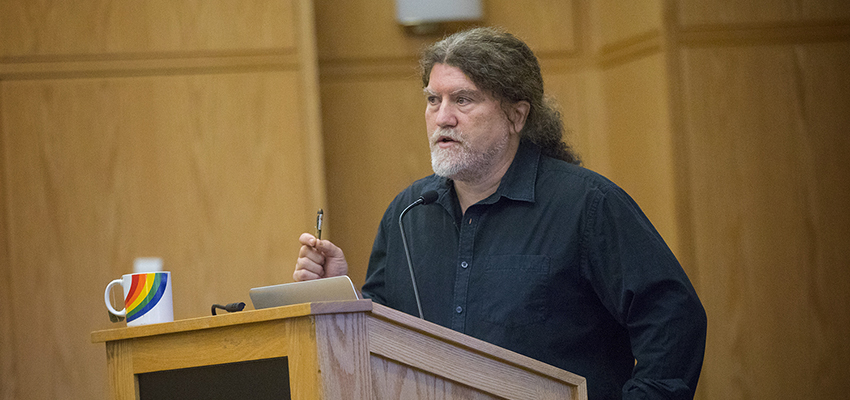
HWS News
14 February 2020 • Faculty • Research Penn Earns NSF Grant to Improve LIGO Capability
Associate Professor of Physics Steven Penn and Syracuse University Professor of Physics Stefan Ballmer are leading a new project funded through a National Science Foundation Grant to develop improved instrumentation for detecting gravitational waves.
Their work will enhance the observational range of the Advanced Laser Interferometer Gravitational-Wave Observatory (LIGO) and its ability to detect ripples in the fabric of spacetime, a major prediction of Albert Einstein’s 1915 general theory of relativity.
According to the NSF abstract, the grant funds “equipment for testing new, lower thermal noise mirror coatings for current and future gravitational-wave observatories.” The equipment, a “cryogenic elastic loss measurement apparatus,” is designed “to revolutionize testing of optical coatings materials. The apparatus permits rapid-turnaround measurement of the elastic loss of the new coating samples, which drives the thermal noise in gravitational-wave detector mirror coatings.”
Penn was a co-author of the Physical Review Letters article announcing the 2015 detection of gravitational waves by LIGO. In 2017, for his work pioneering the discovery of gravitational waves, he was among the international team of scientists recognized with the prestigious and highly selective Special Breakthrough Prize in Fundamental Physics, through which Penn was awarded a “Breakthrough Prize: Scientists Changing the World” medal. Later in 2017, the Nobel Prize in Physics was awarded to Rainer Weiss of MIT, and Barry Barish and Kip Thorne of California Institute of Technology for the discovery of gravitational waves, a scientific breakthrough made possible thanks to the global LSC research team, including Penn.
A longtime member of the LIGO Scientific Collaboration (LSC), Penn discovered how to significantly reduce thermal noise in the material fused silica, which led to the selection of fused silica for the Advanced LIGO mirror substrates and suspensions. With that upgrade, scientists will be able to increase the amount of the universe that can be probed by a thousandfold.
In 2019, Penn was elected Chair of the LSC Council. In the LSC organizational structure, akin to a parliamentary body, the position of Chair corresponds to the Speaker of Parliament, a central role in the management and execution of the group’s mission and goals. The LSC spokesperson is the position that, like the Prime Minister, is the leader of the collaboration. Penn has previously chaired the LSC Coating Working Group, a subcommittee of the Optics Working Group, which is developing coatings for future detectors.
